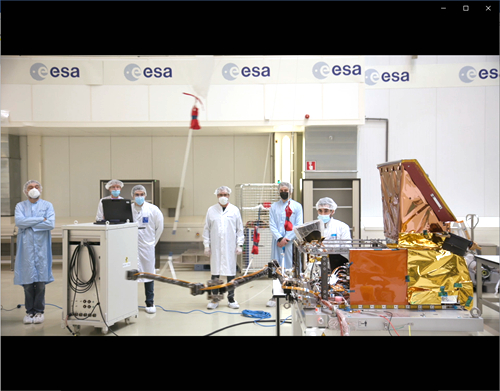
The photo shows the process of the magnetometer extension test. (Provided by the National Space Science Center of the Chinese Academy of Sciences)
BEIJING, Feb. 23 (Xinhua) -- A China-Europe joint space mission, Solar Wind Magnetosphere Ionosphere Link Explorer (SMILE), has successfully carried out the extension test of its payload magnetometer in Europe, Science and Technology Daily reported Wednesday.
The test shows that the function and performance of the magnetometer subsystem integrated with the payload module meet the mission requirements and that the researchers from China and Europe have reached an agreement on the development specifications, technical process, test methods and evaluation standards.
The magnetometer is a set of high-precision detection equipment of space vector magnetic field. It is used to detect the three-dimensional vector of the space magnetic field and obtain the detection data on the size and direction of the solar wind magnetic field.
The magnetometer arrived at the European Space Research and Technology Center (ESTEC) of the European Space Agency (ESA) last month for thermal vacuum test, according to the Chinese Academy of Sciences (CAS).
The SMILE mission is a comprehensive collaboration between the CAS and the European Space Agency (ESA). The magnetometer of the mission was developed by the State Key Laboratory of Space Weather under the CAS National Space Science Center.
The mission, reportedly, expects to send satellites into space before the end of 2024.




 A single purchase
A single purchase









